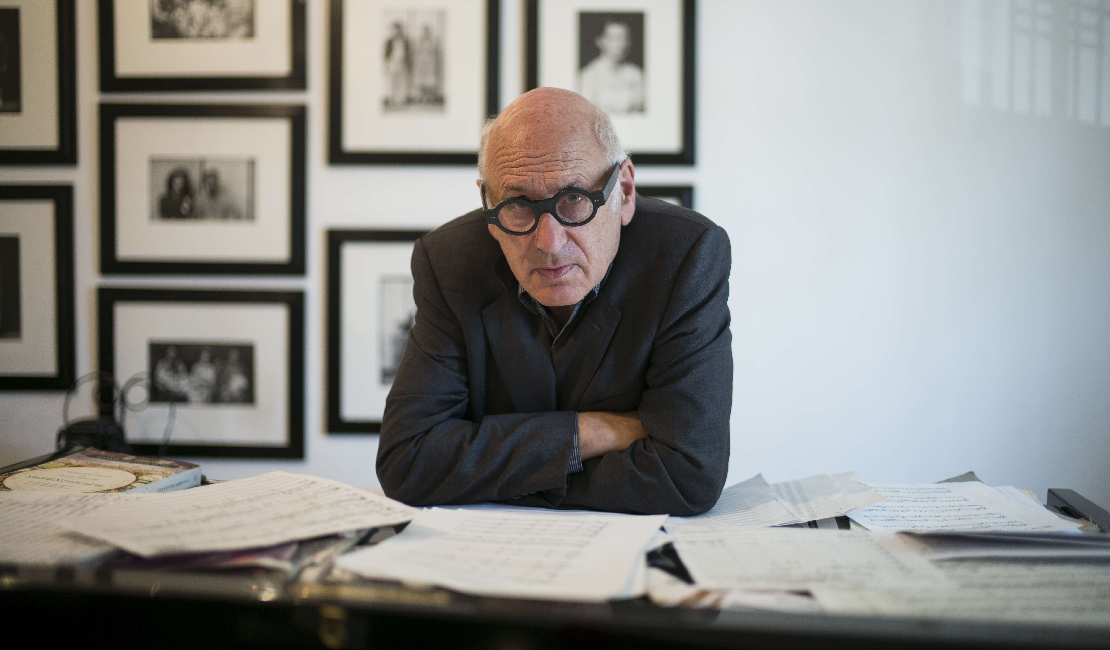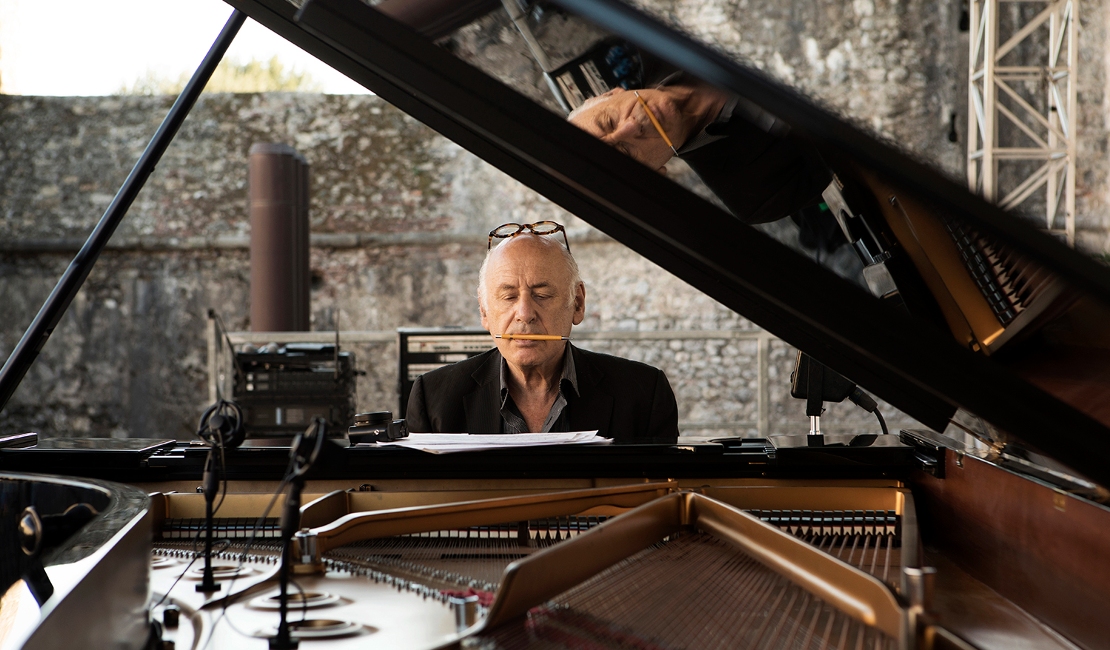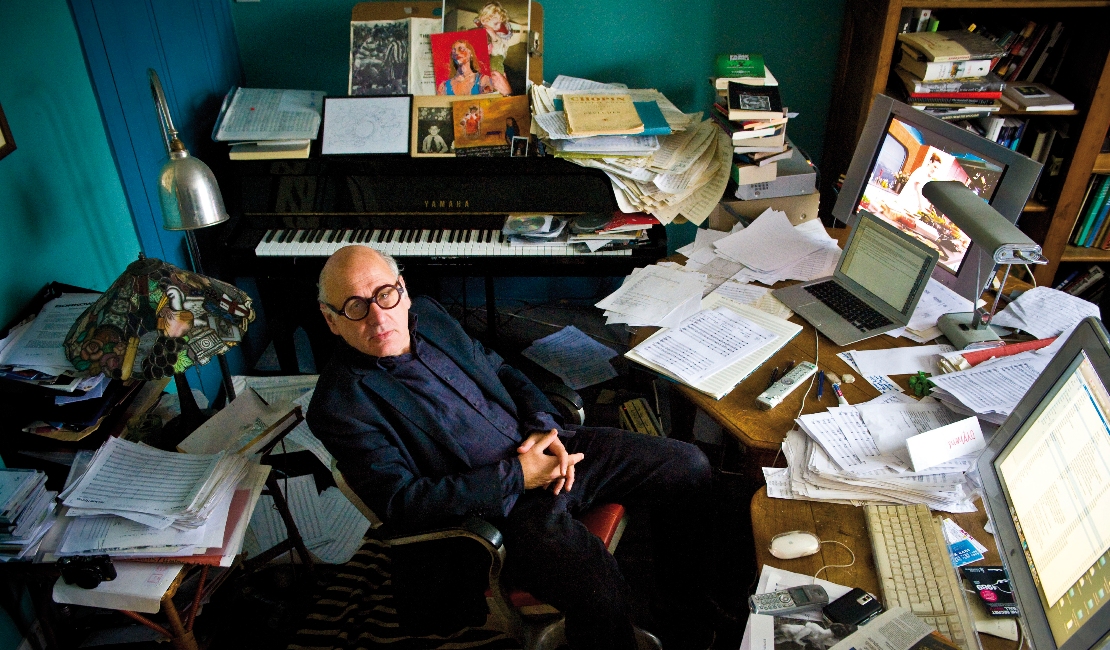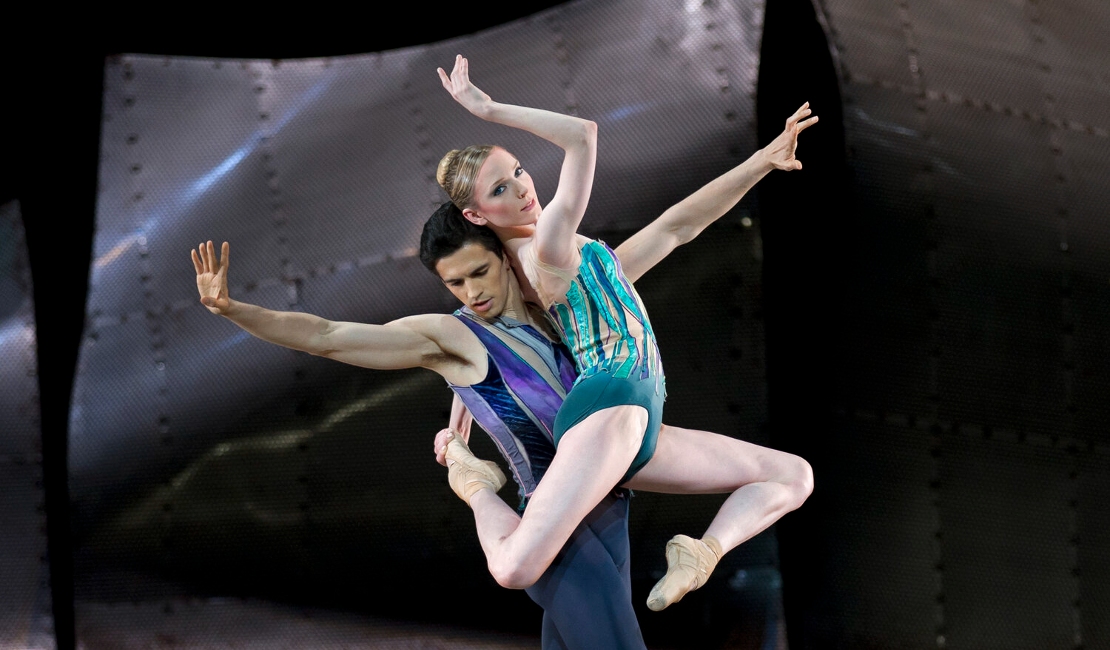Michael Nyman at 80

Michael Nyman is undoubtedly one of the UK’s most innovative and celebrated composers. His reputation is built upon a substantial body of work written for a wide variety of ensembles, not only for his own band, but also for symphony orchestra, choir and string quartet. In addition to his prolific output as a composer, Nyman is also a conductor, pianist, writer, musicologist, photographer and film-maker - his restless creativity and multi-faceted career making him one of the most dynamic and influential figures in contemporary culture.
Nyman's music is variously described as minimalist, punchy, rhythmic, poignant, energising, and memorable. Leading choreographers Lucinda Childs (Portraits in Reflection) Stephen Petronio (Strange Attractors) Christopher Wheeldon (DGV) and Shobana Jayasingh (Miniatures, Flicker, Exit No Exit) have commissioned and worked with his music to great acclaim. Nyman celebrates his 80th birthday in 2024 which seems like as good a reason as any to shed further light on the work of this master of the genre.
Symphony 2 – melodic, rhythmic, driving
Immediately recognisable as music by Michael Nyman, Symphony 2 is largely based on Pozcateck written originally for the Nyman band to accompany sequences from Polish War Films. The four movements encompass the brilliance of Nyman’s Music mind with soaring melodies against passages full of rhythmic colour and texture.
LISTEN HERE:
Symphony 5 – tense, dramatic, fiery, forceful
Darker in tone than the 2nd, Symphony 5 is a four movement work based on the original piece A Dance he little thinks of - inspired by a passage from a book by Lawrence Stern the author of one of Nyman’s lifelong favourite works Tristram Shandy. Signature rhythmic passages are interlaced with beautifully orchestrated slower passages full of tension and poise. Listeners will also hear elements of the final movement of the 6th String Quartet.
LISTEN HERE:
Strong on Oaks Strong on the Causes of Oaks – moto perpetuo, driving, pastoral
This five movement suite for orchestra is a brilliant balance between mood and colour. The music has a beautiful pastoral quality balanced by the signature moto perpetuo of Nyman’s unique rhythmic sensibilities.
LISTEN HERE:
Strong On Oaks, Strong On The Causes Of Oaks, Pt. 1
Strong On Oaks, Strong On The Causes Of Oaks, Pt. 3
Strong On Oaks, Strong On The Causes Of Oaks, Pt. 5
Three Quartets – dynamic, thrusting
Written for the intriguing textural forces of string, sax and brass quartets, Three Quartets is a punchy 15 minute tour de force combining Nyman’s unique ability to write turbulent rhythmic passages with moments of respite.
LISTEN HERE:

© Isabella de Maddalena
The Piano – concerto – rhapsodic, intense, beautiful, building
It’s impossible to write about Nyman’s oeuvre without mentioning his score to Jane Campion’s Oscar winning film The Piano. Ever the creative magpie Nyman has take elements of his score, known to millions the world over, and created a piano concerto encompassing and extending the main themes from the film creating a more coherent structure for the main musical elements for the texture of solo piano and full orchestra. Movements are The Beach, The Woods, The Hut, The Release.
LISTEN HERE:
Trombone Concerto – bold, abstract
From its atmospheric opening for solo trombone this concerto is a roller coaster of sounds and moods across 9 musical sections. There’s no better description than that by Nyman himself:
The background to the concerto is an essay by the late E.P. Thompson entitled 'Rough Music', Thompson defines Rough Music as 'the term which has been generally used in England since the end of the 17th century to denote a rude cacophony, with or without more elaborate ritual, which usually directed mockery against individuals who offended against certain community norms'. This cacophony was usually produced by 'a band of motley musicians, beating a fearsome tattoo on old buckets, frying pans, kettles and tin cans. The Concerto draws on the imagery of such practices in a confrontation of metal and wood versus metal and wood: the trombonist/offender has his constant support system of the brass and string sections which are persistently and vigorously opposed by metal percussion and woodwind, who always hunt in packs.
LISTEN HERE:
Nyman: Trombone Concerto: VIII.

© Francesco Giudicini
The film music of Michael Nyman
Nyman’s creative partnership with directors Peter Greenaway, Jane Campion and Michael Winterbottom spawned some of his most recognisable music. He has created suites for orchestra from the movie material to provide a wonderful opportunity to bring these works to life beyond their original soundtrack context.
The Draughtsman’s contract for orchestra
Peter Greenaway’s first conventional feature film was the comedy drama The Draughtsman’s Contract. Set in England in 1694 the period is brilliantly reflected in Nyman’s score which draws on the music of Henry Purcell. Chasing Sheep is Best Left to Shepherds is one of Nyman’s most performed tracks and provides a joyous and noble romp through some punchy and climactic music. The gentle march-like nature of Watery Death and the driving ground bass of The Garden is Becoming a Robe Room and the brilliant bubbly triple time The Disposition of the Linen are classic Nyman.
LISTEN HERE:
The Garden is Becoming a Robe Room
Chasing Sheep Is Best Left to Shepherds
Drowning by Numbers for orchestra
In the Greenaway film Drowning by Numbers his 3rd collaboration with Nyman, number-counting, the rules of games and the repetitions of the plot are all devices which emphasise structure. Through the course of the film each of the numbers 1 to 100 appear often seen in the background, sometimes spoken by the characters. Nyman’s score includes some of his most elegantly poised music. The waltz nature of Sheep and Tides alongside the beautifully paced and gently driving Wheelbarrow Walk and the drama and contrasts of The Wedding Tango provide some wonderful material to make dance to.
LISTEN HERE:
Directed by Michael Winterbottom, The Claim is a 2000 Western romance film loosely based on the 1886 novel The Mayor of Casterbridge by Thomas Hardy. Nyman’s music effectively captures the western mood whilst maintaining his signature sound and fingerprint. The anthemic The Burning is a compelling build to the finish, not unlike elements of MGV choreographed by Christopher Wheeldon. The almost impatient The Fiery House has some hugely lyrical moments which weave in and out of the texture.
LISTEN HERE:

© ROH/Bill Cooper, 2011
Nyman’s score for The Piano is timeless, classic, emotive, fluid and full of lyrical lines and character.
Directed by Jane Campion it is a period a period drama about a mute Scottish woman (Holly Hunter) who travels to a remote part of New Zealand with her young daughter after her arranged marriage to a frontiersman (Sam Neill). The score by Nyman is immediately recognisable. Knowing the lead character was from Scotland he found it logical to use Scottish folk and popular songs as the basis. Movements can be performed in any order.
LISTEN HERE:
Concert suite from Prospero’s Books
Shakespeare never sounded so good... This score to Peter Greenaway's film version of the Tempest - Prospero's Books could not have been written by anyone other than Nyman. From the propulsive driving opening of Prospero's Magic to the stately elegance of Cornfield. Nyman gives Miranda, the sole female in the play some of his strongest music depicting this perfect and fearless character. It’s a ballet waiting to happen.
LISTEN HERE:
Prospero's Books - Prospero's Magic
Prospero's Books - Prospero's Curse
Gattaca was Nyman’s first Hollywood score, composed for full orchestra, as opposed to the Nyman Band. The musical material delivers the sinister, fascinating, hopeful and (at the time) incredible nature of the film. The foreboding of The Morrow against the unbridled joy of Becoming Jerome and then the resolution of the final and fatal The Departure provide a brilliant and emotional musical foil to the film’s dystopian premise. Directed by Andrew Niccol the 1997 Gattaca presents a future society driven by eugenics where potential children are conceived through genetic selection to ensure they possess the best hereditary traits of their parents. The main character is Vincent Freeman, played by Ethan Hawke, who was conceived outside the eugenics program and struggles to overcome genetic discrimination to realise his dream of going into space.
LISTEN HERE:
